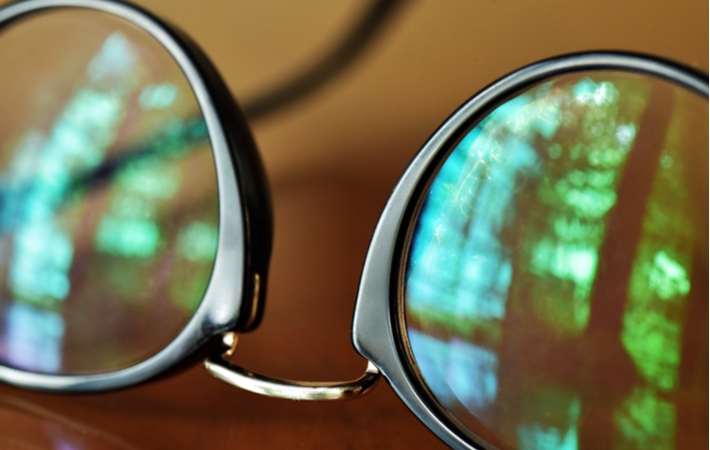Anti-reflective coating, also known as anti-glare or AR coating, is usually made from silver, and it helps to reduce the amount of light that reflects off surfaces. It can be applied to lenses or glasses frames. Anti-reflective coating reduces glare and improves contrast when viewing indoor activities like reading or watching TV.
In case you’ve been told to get anti-reflective coated glasses or lenses, but you want to learn about it first. Then you’ve come to the right page. This article discusses the pros and cons of AR coating, consideration for AR coatings, and the types of anti-reflective coatings.
Benefits Of Anti-Reflective Coatings
They Increase The Life-span Of Your Lenses
If you’re looking for a way to protect your lenses from scratches and other damage, then an anti-reflective coating would be a good choice for you. It helps you save on lens replacement.
They Protect Your Eyes From UV rays
Anti-Reflective coating for glasses helps cut glare and reduce eye fatigue. When you’re outside on a sunny day, your eyes are exposed to a lot of light. Glare from the sun can cause headaches and eye strain, which is why it’s important to protect your eyes from harmful rays.
They Enhance Visual Clarity
Anti-reflective coating for glasses is an important part of the visual clarity of a pair of eyeglasses. It reduces the amount of light that reflects off the surface of the lenses, which can make you feel more comfortable and less fatigued. AR coatings also allow you to see clearly while still protecting your vision from harmful light sources.
They Enhance Your Appearance
Anti-reflective coating for glasses can enhance the appearance of your glasses. This helps make you look more attractive, as it reduces the glare from light sources and makes your face appear more transparent. It also makes you more confident in public.
Factors To Consider Before Selecting AR Coatings
Below are some factors that determine the best AR coatings for you.
Substrate Used
The kind of substrate used helps to determine if an Anti-reflective coating is what you need.
- A glass substrate can work with a wavelength spectrum from 200nm to 2500nm, depending on your preference. If you work with laser systems regularly, then glass AR coatings that meet the laser damage threshold are your best option.
- Plastic and molded polymer substrates work within a wavelength spectrum of 300nm to 2000nm and cannot withstand heat. Hence, their AR coating processes must not exceed 50 degrees Celsius.
- Semiconductor, garnet, and crystal substrates. These types provide high surface qualities and reduced spectral shifts. They also resist laser damage, and their anti-reflective coatings produce dense films with reduced optical loss.
Number Of Optical Elements
The number of optical elements is a key factor in determining the right AR coatings for your needs. If you work with a system containing a high number of optical elements, then AR coatings are important for you. They increase the degree of efficiency and overall performance of light.
Types Of Anti-Reflective Coatings
-
Single-layer AR coatings.
An example of single-layer AR coatings is Magnesium Fluoride (MgF2). It is best applied for visible light and is mostly used as a Broadband AR (BBAR) coating.
-
Multi-layer AR coatings.
They are mostly used to enhance the optical performance of an AR coating. It drastically reduces the amount of reflected light by using many layers of a thin film coating.
Application Of AR coatings
The anti-reflective coating has provided solutions to a variety of problems across several industries, such as; optometry, photography, solar energy, and more. Before going ahead to install AR coatings, you need to make sure it’s the right solution for you. The intended application needs to be considered.
Here are some popular applications of AR coatings:
Displays. Using AR coatings on screens and displays allow for better optical performance by reducing reflection and glare. When light from the outside hits a screen, it leads to glare. Anti-reflective coating solves this issue.
Camera Systems. A lot of Camera systems now use Anti-reflective coating to minimize unwanted glare and reflection when used for telecommunications and imaging.
Anti-reflective coating for glasses does make a difference. The function and benefits of anti-reflective coating are quite significant. However, you must ensure you choose the right AR coatings for your needs. It is best to allow an expert to help you with this choice. They have knowledge and tools needed to determine the type of coating to go for.







